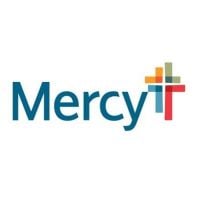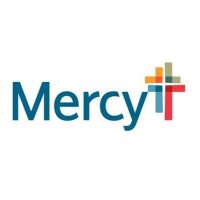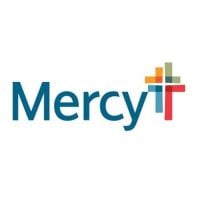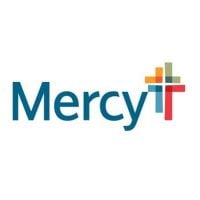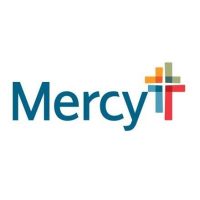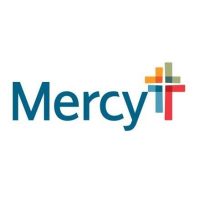Center for Professional Counseling
Drug Rehab Center in Springfield, Missouri
Center for Professional Counseling in Springfield, Missouri is a private counseling and recovery center offering high-quality services in addiction and mental health issues, including traditional counseling, family therapy, group therapy, trauma counseling, and nutrition counseling, using evidence-based treatment options and therapeutic approaches such as cognitive-behavioral therapy and dialectical behavior therapy.
About Center for Professional Counseling in Missouri
Center for Professional Counseling in Springfield, Missouri is a private counseling and recovery center dedicated to providing high-quality services to those struggling with addiction, mental health issues, and other related problems. They offer several therapeutic and evidence-based treatment options for individuals and families, such as traditional counseling, addiction and substance abuse counseling, and holistic healing modalities. They also provide specialized recovery services such as family therapy, group therapy, trauma and grief counseling, nutrition counseling, and parenting education.
The counseling team at Center for Professional Counseling strive to provide individuals struggling with addiction and substance abuse with a comprehensive treatment that addresses all aspects of their lives. They use a combination of therapeutic approaches such as cognitive-behavioral therapy, dialectical behavior therapy, and motivational interviewing to help clients gain insight into their addiction, develop a plan for recovery, and work on building a more fulfilling and healthy lifestyle. With a commitment to their clients’ recovery, they offer support and resources to help them stay on track and reach their goals. Additionally, their team of mental health professionals are experienced in helping clients cope with underlying mental health issues that may be contributing to their substance abuse.
Center for Professional Counseling is proud to hold multiple accreditations in addiction treatment, including the Commission on Accreditation of Rehabilitation Facilities (CARF), and is licensed by the Missouri Department of Mental Health. They also offer recovery services in Spanish and ASL, and are part of the National Coalition for Mental Health Professionals. Additionally, their counselors are certified in the National Addiction Counselor Certification Program, ensuring their clients receive the highest quality care.
Genders
Ages
Modality
Additional
Conditions and Issues Treated
Opioid addiction is when someone becomes addicted to opioids. This can happen quickly due to any opioid use. Opioid withdrawal can be uncomfortable and lead the user to continue using even if they want to quit. It’s best to receive inpatient treatment for detoxification.
Even if a person doesn’t need inpatient treatment, it’s recommended to start rehabilitation or at least some kind of outpatient treatment. This is because the withdrawal symptoms from opioids can be uncomfortable and unpleasant, to the point that a person could end up using again or worse.
Detoxification should be done to break the physical addiction of opioids. This can be done with opioid replacement therapy, medication-assisted therapy, or a more traditional detoxification program. Intensive outpatient treatment is a form of addiction care that allows patients to continue living at home while undergoing treatment. This type of care is appropriate for patients who have been treated in residential treatment programs. Intensive outpatient programs include regular visits to the facility providing therapy, and patients gradually return to their routine life. IOP benefits most when patients have a supportive family member or friend to help them recover.
The first step to getting into an intensive outpatient program is to attend a detoxification facility. Detoxification facilities are designed to remove substances from the body safely. The patient will attend sessions designed to help them understand their addiction and its impact on their lives. While in an intensive outpatient program, therapy sessions are scheduled three to five times per week, with the patient attending no more than two sessions in one day.
Levels of Care Offered
This center offers a variety of custom treatment tailored to individual recovery. Currently available are Aftercare Support, Drug Rehab, Outpatient, with additional therapies available as listed below.
Outpatient treatment consists of counseling and therapy sessions. The outpatient treatment process begins with the addict’s initial detox period, lasting about ten days. Outpatient treatment is used for those who are at moderate risk for “slipping back” into the addiction. It is also used for those who are not currently experiencing any side effects from withdrawal, can handle social pressure, have a stable living environment, and have a good support system.
Aftercare support is often overlooked in the treatment of drug and alcohol addiction. However, it’s an essential part and should be considered when planning a course of rehab.
Aftercare is a term that’s used to refer to any sort of continuing care offered for a drug addict who has voluntarily entered a rehabilitation program. This type of care can be provided in several settings, including outpatient therapy sessions after the addict has completed an inpatient program. There are also 12-step support groups, such as Alcoholics Anonymous, which can provide additional help for addicts trying to stay sober.
Aftercare is vital because addicts often face many challenges as they attempt to recover from drug addiction or alcoholism. Because of the powerful nature of these addictions, those who struggle with a drug or alcohol problem will likely have to face the craving for their substance of choice for the rest of their lives. Recovering can be a lonely and frustrating endeavor, especially without the support of others who are going through similar situations.
Therapies & Programs
Individual Therapy is a crucial component of addiction recovery. Therapists work with patients to identify the root of their addiction and figure out how to better handle the issues that led to them using drugs. Individual Therapy is one on one sessions where people meet with their therapist. Individual therapy provides a safe space for people to open up and discuss personal and sensitive topics which they may not feel comfortable discussing in a group setting.
In this type of therapy, therapists can develop specific solutions for each patient, which helps speed up their recovery process. In addiction recovery, therapy is a crucial part. It allows patients to go deep into their core issues and discover how those problems can be better handled now. Therapy can be performed in individual sessions as well as group settings. In individual therapy for addiction, the patient meets with the therapist one-on-one to focus on the underlying issues of addiction and come up with solutions to prevent future abuse.
Addiction can take a heavy toll on relationships, damage the trust and intimacy that was once there. Couples therapy at Center for Professional Counseling helps to rebuild the trust and intimacy that has been damaged. An intimate relationship with a drug addict is not healthy for children or anyone in the family. Therapist help to rebalance family roles and create a healthier environment after rehab in Springfield, MO.
Family therapy is a crucial part of drug treatment and getting sober. It is one of the most effective ways to help addicts stay on the path to long-term sobriety. One of the most important parts of family therapy is the relapse prevention plan. During treatment, therapists and doctors will often sit down with the addict and their family to develop a plan if the addict ever feels like they want to use again. This plan should involve steps the addict and family can take together to prevent them from relapsing in the future.
An addict’s family can play a vital part in helping them to avoid relapse because they can spot the warning signs and help them get back on track before it becomes too much of a problem. Family therapy is one of the most effective ways to help addicts stay on the path to long-term sobriety.
Group Therapy is employed by drug treatment centers like Center for Professional Counseling to provide the recovering addict with a platform to talk about their feelings and experiences. It also provides for an opportunity to learn from other addicts who have successfully overcome their addiction. It is recommended that all group members be recovering addicts for this type of therapy to work.
Payment Options Accepted
For specific insurance or payment methods please contact us.
Additional Details
Specifics, location, and helpful extra information.
Springfield, Missouri 65804 Phone Number(417) 882-4110 Meta DetailsUpdated November 25, 2023
Staff Verified
Center for Professional Counseling Patient Reviews
There are no reviews yet. Be the first one to write one.
Springfield, Missouri Addiction Information
Opioid-related overdoses in Missouri have been increasing steadily for the past three decades. In 2018, more than 1,130 people in Missouri died from opioid abuse. Methamphetamines and marijuana abuse have surpassed opioid abuse in Missouri. Missouri is the number 1 methamphetamine manufacturer in the country with more than 27 meth labs per 100,000 people.
There are around 9,000 people who are addicted to drugs in Springfield, MO. This accounts for around 7% of the population. Around 2,000 people have an addiction to this cocaine. Other types of drugs abused in Springfield include heroin, methamphetamine, painkillers, and marijuana. 17.8% of high school students are reported using an illicit drug. Drug treatment in Springfield, MO, typically involves detoxification, therapy, and aftercare.
Treatment in Nearby Cities
- Bridgeton, MO (192.5 mi.)
- Hayti, MO (205.3 mi.)
- Steele, MO (204.7 mi.)
- Hillsboro, MO (166.3 mi.)
- Marshfield, MO (24.5 mi.)
Centers near Center for Professional Counseling
The facility name, logo and brand are the property and registered trademarks of Center for Professional Counseling, and are being used for identification and informational purposes only. Use of these names, logos and brands shall not imply endorsement. RehabNow.org is not affiliated with or sponsored by Center for Professional Counseling.

